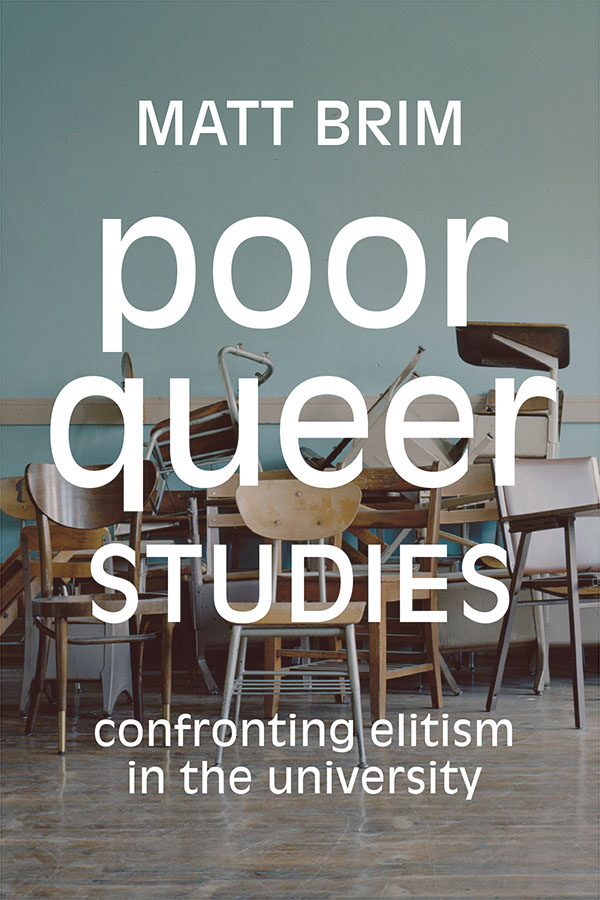The review focuses on the practical work of Poor Queer Studies. Rather than retheorize queer studies from the class perspective of “rich” and “poor,” Brim makes a case study of his work as a professor of queer studies at the College of Staten Island (CSI). Insisting on the particularity of his and his students’ relationship to queer studies, Brim makes an example of the work they do together in the classroom, and the ways they live their studies on public transit, at home with their families, and in their part-time jobs. This review questions the extent to which poor queer studies differs from the modern university’s reduction of all education to career-training. Brim’s praxis of poor queer studies is always undertaken with individual students in specific socio-economic circumstances—a particularity that makes it different than market-driven job-training. This review also raises questions about the general applicability of this case study. Would poor queer studies work elsewhere as it does at CSI? Berlant’s idea of exemplarity is helpful in answering this question. Unlike examples that confirm a norm, there are examples that change norms. Brim’s example of poor queer studies works to exemplarily change what counts as normal. Practically, this means no longer thinking of queer studies as operating without class distinction—and reclaiming part of the work of the discipline from seemingly classless rich queer studies at places like Yale and New York University.
Keyword: praxis
Review of Mapping Queer Space(s) of Praxis and Pedagogy, edited by Elizabeth McNeil, James E. Wermers, and Joshua O. Lunn (Palgrave Macmillan)
In this edited collection, Elizabeth McNeil, James E. Wermers, and Joshua O. Lunn draw together cutting-edge thinkers on queer pedagogy and queer activist praxis in an effort to dismantle the historical underpinnings of education as a tool of oppression. As an alternative to normative education, the editor offer up queer pedagogy as a methodology for “challenging accepted hierarchies, binaries, and hegemonies that have long dominated pedagogy and praxis” (5). The collection features the queering of traditionally normative classroom and academic spaces alongside queer approaches towards less commonly acknowledged sites of learning, such as social media websites, community advocacy meetings, and prisons.
Review of Critical Marxism in Mexico: Adolfo Sánchez Vázquez and Bolivar Echeverría by Stefan Gandler (Haymarket)
With this book, Stefan Gandler has made important contributions to the study of Marxism and critical social theory in Mexico. Regarding the first contribution, this book expands the theoretical tools and insights within the canon of Marxist thought. It does this by exposing American and European Marxists to two very important thinkers who have not yet been given much attention by Marxists outside of the Latin American context. The second contribution lies in Gandler’s exegetical work on the texts of these two thinkers, Adolfo Sánchez Vázquez and Bolívar Echeverría.
“Up for Grabs”: Agency, Praxis, and the Politics of Early Digital Art
In its infancy, digital art was, as artist and writer Anne M. Spalter enthusiastically put it, “up for grabs.” But how did women artists overcome the fallacy that computer technology was inherently masculine? And why did computing become a kind of sanctuary for some women artists? I will show that the indeterminacy and flux that permitted freer agency, was reflected in the computing field as a whole. Over time, anti-computer sentiment, which affected all artists using the medium, would prove so pervasive that it often eclipsed the sexism later suffered by women.



